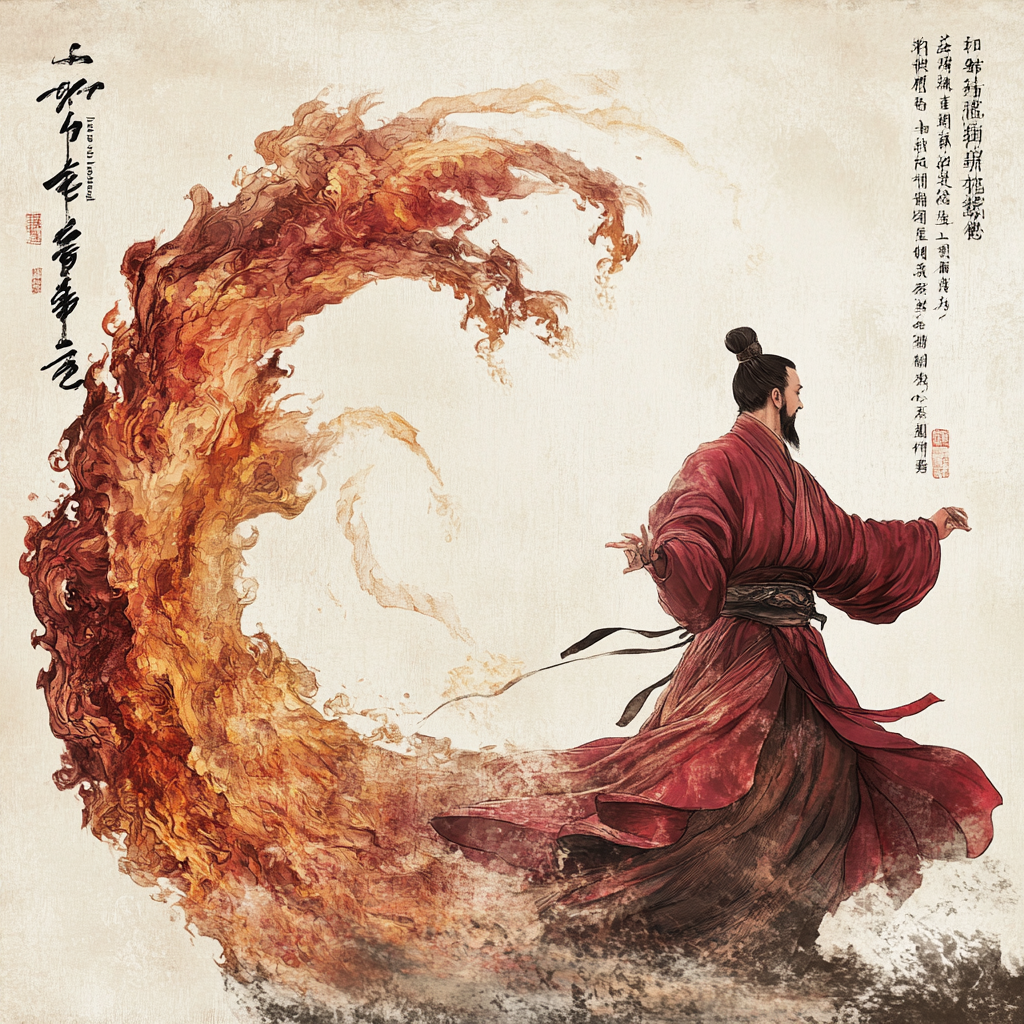Qi Node 12: 大暑 Dàshǔ (Greater Heat)
When Yang Refuses To Yield
Since the solstice, yáng qì 陽氣 has gradually begun to recede. There’s no sudden collapse or dramatic turn—just the steady turning of the seasonal wheel, as the arc of a force that reached its height now begins its slow decline.
Still, Yang is not inclined to yield easily.
We are now in the qi node known as Dàshǔ 大暑, or “Greater Heat,” the final seasonal node of summer. At this stage, Yang is no longer growing, but it hasn’t yet dissipated either. Instead, it becomes resistant—less dynamic, more forceful. In classical texts, this state is sometimes referred to as yǒuhài 有害—harmful Yang, a form of excess that oversteps the bounds of harmony. Rather than warming and ripening, this phase of Yang has a tendency to overheat, pushing beyond what is beneficial.
The broader seasonal cycle continues. Autumn will arrive, Yin will gradually take its place. But for now, Yang pushes back against the inevitable transition, and in doing so, it can begin to strain the systems it once supported.
The Final Bloom Of Excess
Earlier in the summer, Yang was expressive and purposeful. It inspired action—bringing us outdoors into sunlit landscapes, into gardens and rivers, toward late evenings filled with movement and momentum. That energy helped bring to life the intentions we set earlier in the year.
Now, as the seasonal crest gives way to decline, Yang doesn’t taper off with ease. Instead, it intensifies. The heat becomes less supportive and more oppressive. The ground hardens. Dampness, once settled, begins to rise under pressure. Crops approach ripeness, but so too do underlying patterns of stagnation and reactivity.
This is the challenge of Greater Heat: the same force that encourages completion can also tip things toward disruption.
We see this in the environment—through wildfire risk, sudden storms, or erratic temperature swings—and in the body, where excess heat might show up as rashes, digestive discomfort, poor sleep, or a general feeling of restlessness or irritability. For others, the effects are more subtle: heaviness in the limbs, low-grade tension, or a vague emotional unease that’s hard to explain.
Conduct, Cosmology, and the Limits of Control
Traditional cosmologies remind us that human life is not separate from the world around it. We are animated by the same cycles that govern sky and soil. And yet the rhythms of modern life often obscure that fact.
We tend to treat time as uniform, asking the same level of output from ourselves in every season. We exercise according to schedule, not environment. We keep lights on late into the night, skip meals when busy, and expect productivity even when our bodies are calling for rest.
Yang, like all forces, has a lifespan. Its presence is vital, but it is not meant to be constant. Sustained health depends not only on growth and achievement, but also on the ability to respond to change, to shift gears, to step back when it’s time. When we ignore this need for modulation, we risk weakening the very foundation we rely on.
The body can accommodate these misalignments for a time. But over the long arc, it seeks to restore balance.
What to do
The medicine now is simple: do less. Cool down. Don’t match the world’s fire with more of your own.
Brightly colored fruit on a plate: blueberries, raspberries, melon, and pineapple
Rest in the shade. Seek stillness, not just shelter.
Don’t skip breakfast. Anchor your qi early.
If you’re going to miss a meal, let it be dinner. The day should begin with nourishment, not end in depletion.
Drink plenty of water, especially with cooling additions like cucumber, mint, or chrysanthemum.
Favor simple grains. Cooked white rice is ideal—light, moistening, easy to digest.
Enjoy fresh fruit like melons between meals or at least several hours after eating.
Exercise in the early morning. After midday, your body needs to slow down, not speed up.
Take a cool shower. Wash your hair. It helps release trapped heat from the head.

